Ditapis dengan
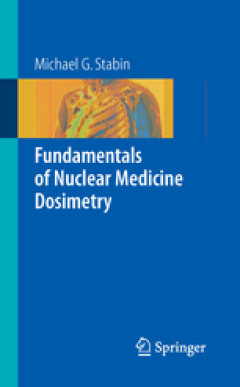
Fundamentals of Nuclear Medicine Dosimetry
Written by Michael Stabin, a leading international authority in the field, this book is ideal for physicians and residents in nuclear medicine who want to improve their knowledge in internal dosimetry. This text is a practical introduction that guides the reader through fundamental concepts in the calculation of radiation dose, including discussions of standardized models, methods of calculatio…
- Edisi
- -
- ISBN/ISSN
- 9780387747587
- Deskripsi Fisik
- 237 p. : illus. ; 20,5 cm
- Judul Seri
- -
- No. Panggil
- 610 Sta f
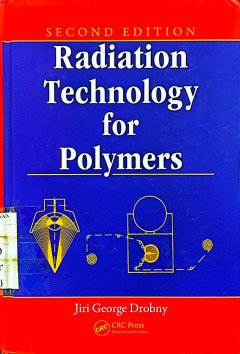
Radiation Technology for Polymers, Second Edition
With a heightened focus on green chemistry and sustainability as well as the development of nanomaterials, this second edition explores emerging applications of radiation technology to polymers. It considers novel uses in the automotive, electronics, and wood-processing industries; applications in waterborne coatings and adhesives, film modifications, high-performance coatings, and inkjet techn…
- Edisi
- Second Edition
- ISBN/ISSN
- 9781420094046
- Deskripsi Fisik
- 283 p. : illus. ; 24 cm
- Judul Seri
- -
- No. Panggil
- 668.9 DRO r
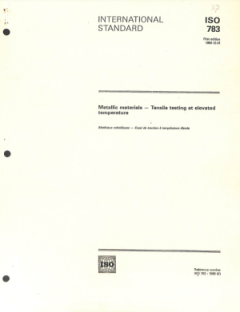
Metalica Materials-Tensile Testing at Elevated Temperature
-
- Edisi
- -
- ISBN/ISSN
- -
- Deskripsi Fisik
- -
- Judul Seri
- ISO 783-1989 (E)
- No. Panggil
- 621.3673 ISO M
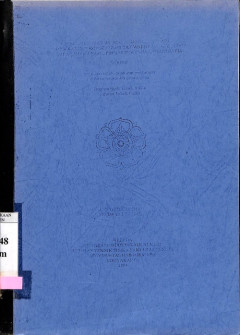
Pengaruh Iradiasi Sinar Gamma Terhadap Pengurangan Konsentrasi Zat Warna Napt…
Pada saat ini masih banyak industri batik di Yogyakarta yang masih mengolah hasil limbahnya secara kimia, namun cara ini kurang efektif karena tidak dapat mengolah limbah hasil proses pewarnaan kain batik yang mengandung zat warna sintetis yang bersifat karsinogenik dan nonbiodegadrable. Untuk itu diperlukan teknik pengolahan limbah dengan radiasi sinar gamma. Pengurangan konsentrasi zat warna …
- Edisi
- -
- ISBN/ISSN
- -
- Deskripsi Fisik
- xiv, 80 p. : Illus. ; 10 cm
- Judul Seri
- -
- No. Panggil
- 621.48 UMM p
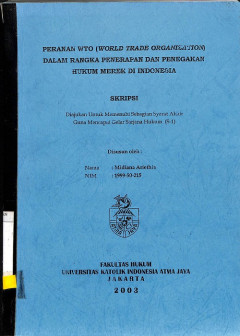
Peranan WTO (World Trade Organization) Dalam Rangka Penerapan dan Penegakan H…
Seiring era globalisasi, permasalahan sekitar Hak atas Kekayaan Intelektual (HaKI) semakin mendapat perhatian khusus dari negara-negara di dunia karena dianggap telah sangat mempengaruhi perekonomian. Demikian pentingnya HaKI, sehingga kemudian dimasukkan dalam Perundingan Perdagangan GATT yang akhirnya menghasilkan World Trade Organization (WTO) yang salah satu lampirannya adalah Agreement on …
- Edisi
- -
- ISBN/ISSN
- -
- Deskripsi Fisik
- vi, 66 p. : Illus. ; 23 cm
- Judul Seri
- -
- No. Panggil
- 340 ARI p
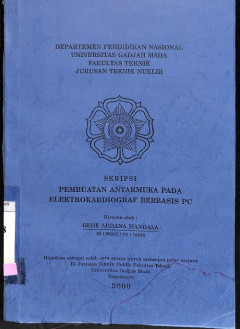
Pembuatan Antarmuka Pada Elektrokardiograf Berbasis PC
Peralatan Elektrokardiograf (EKO) merupakan peralatan yangs sangat dibutuhkan dalam suatu rumah sakit. Perlu dilakukan perancangan dan pembuatan antarmuka untuk memanfaatkan PC sebagai EKG. Perancangan dilakukan dengan mempertimbangkan ketersediaan komponen di pasaran lokal. (Jml)
- Edisi
- -
- ISBN/ISSN
- -
- Deskripsi Fisik
- xvi, 228 p. : Illus. ; 20 cm
- Judul Seri
- -
- No. Panggil
- 621.48 MAN p
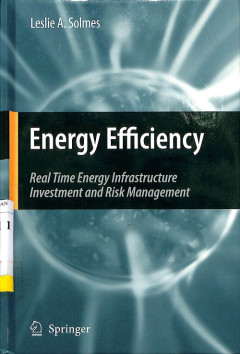
Energy Efficiency: Real Time Energy Infrastructure Investment and Risk Manage…
Energy efficiency is a journal and a guide intended to communicate to people, especially in the United States, the economic and social benefits of rebuilding our aged, inefficient energy supply systems where use of internet-based information technology underpins the communication and trust needed to realize the huge profit potential contained in energy efficiency. (Jml)
- Edisi
- -
- ISBN/ISSN
- 9789048133208
- Deskripsi Fisik
- xiii, 212 p. : Illus. ; 24 cm
- Judul Seri
- -
- No. Panggil
- 333.7911 SOL e
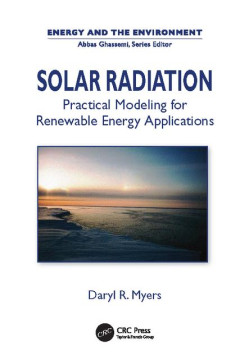
Solar Radiation: Practical Modeling for Renewable Energy Applications
This book discusses renewable energy, especially solar radiation. With a practical approach written by experts in their fields who work at the National Renewable Energy Laboratory (NREL). The topics cover the basics of solar radiation, bright sky solar radiation modeling, global radiation modeling, missing component modeling, daylight modeling, future prospects of solar radiation, and many othe…
- Edisi
- -
- ISBN/ISSN
- 9781138075542
- Deskripsi Fisik
- xxiii,182p.:illus, 22cm
- Judul Seri
- -
- No. Panggil
- 551.527 MYE S
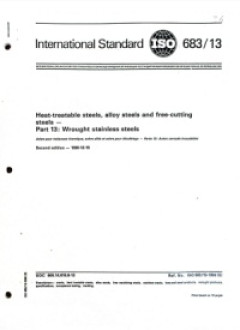
Heat-Treatable Steels, Alloys Steels and Free-Cutting Steels. Port 13: Wrough…
-
- Edisi
- -
- ISBN/ISSN
- -
- Deskripsi Fisik
- -
- Judul Seri
- ISO 683/13 - 1986 (E)
- No. Panggil
- 621.3673 ISO H
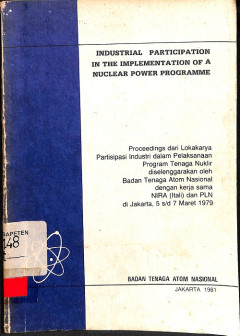
Industrial Participation in the Implementation of a Nuclear Power Programme: …
Prosiding ini adalah hasil lokakarya dalam Partisipasi Industri pelaksanaan Program Tenaga Nuklir yang diselenggarakan oleh Badan Tenaga Atom Nasiona dengan kerja sama NIRA (Italia) dan PLN pada tanggal 5-7 Maret 1979 di Jakarta.
- Edisi
- -
- ISBN/ISSN
- -
- Deskripsi Fisik
- 230 p. : Illus. ; 23 cm
- Judul Seri
- -
- No. Panggil
- 072.62148 PRO i
 Karya Umum
Karya Umum  Filsafat
Filsafat  Agama
Agama  Ilmu-ilmu Sosial
Ilmu-ilmu Sosial  Bahasa
Bahasa  Ilmu-ilmu Murni
Ilmu-ilmu Murni  Ilmu-ilmu Terapan
Ilmu-ilmu Terapan  Kesenian, Hiburan, dan Olahraga
Kesenian, Hiburan, dan Olahraga  Kesusastraan
Kesusastraan  Geografi dan Sejarah
Geografi dan Sejarah